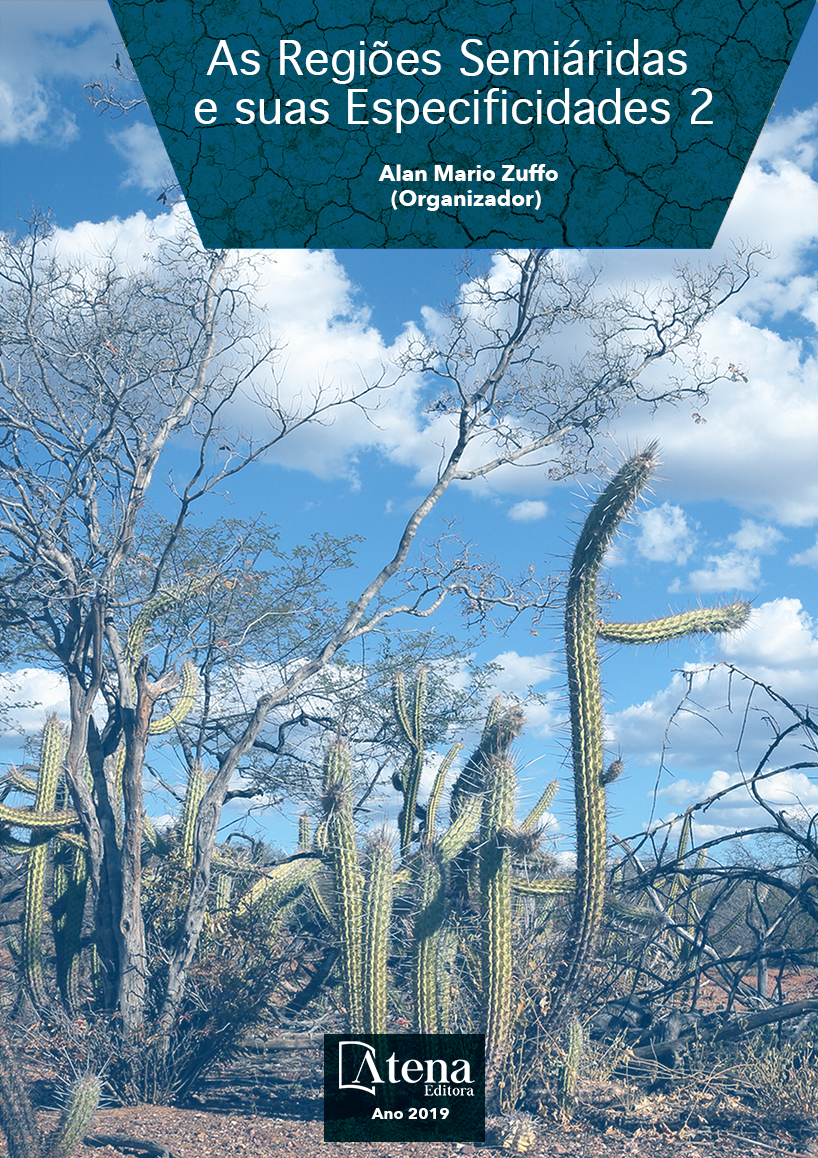
DIAGNÓSTICO DO SANEAMENTO BÁSICO RURAL NO MUNICÍPIO DE PORTO DO MANGUERN, SEMIÁRIDO BRASILEIRO
O presente trabalho tem como
objetivo realizar o diagnóstico das condições do
saneamento básico na zona rural do município
de Porto do Mangue/RN, situado na região
semiárida. Foram utilizados questionários
estruturados aplicados pelos agentes
comunitários de saúde do município de Porto
do Mangue, de onde foram extraídos, tabulados
e analisados os dados sobre as condições de
moradia na zona rural, especificamente nos
pontos relacionados ao abastecimento de água,
forma de tratamento da agua consumida pela
população, destinação do esgoto e descarte
do lixo. Constatou-se que somente 1/3 da
população tem acesso à água encanada, e
que mais da metade das residências da zona
rural do município é abastecida por carropipa, em sua maior parte sem nenhum tipo de
tratamento. A zona rural do município não conta
com sistema de coleta, tratamento e destinação
final de esgoto, e em sua maioria, os efluentes
hidrossanitários são armazenados em fossas
rudimentares, também conhecidas fossas
negras e, em alguns casos, a disposição do
esgoto se dá a céu aberto. Apenas 38% do lixo
produzido na zona rural de Porto do Mangue
é coletada, enquanto 35% sofre queima ou é
enterrado. O diagnóstico trouxe a tona um
cenário alarmante, com condições precárias
de acesso ao abastecimento de água para
consumo humano, destinação de esgoto e lixo,
tornando urgente a definição e implantação
de ações corretivas no curto prazo, e ações
estruturantes para médio e longo prazo, de
forma a proporcionara a todos os moradores, o
acesso ao saneamento básico com qualidade.
DIAGNÓSTICO DO SANEAMENTO BÁSICO RURAL NO MUNICÍPIO DE PORTO DO MANGUERN, SEMIÁRIDO BRASILEIRO
-
DOI: 10.22533/at.ed.91619150311
-
Palavras-chave: Acesso a água; Saúde coletiva; Tratamento de esgoto.
-
Keywords: Access to water; Collective health; Sewage treatment.
-
Abstract:
The objective of this study is to carry
out a diagnosis of basic sanitation conditions in
the rural area of Porto do Mangue / RN, located
in the semi - arid region. We used structured
questionnaires applied by the community health
agents of the municipality of Porto do Mangue, from which the data on the housing
conditions in the rural area were extracted, tabulated and analyzed, specifically on the
points related to water supply, water treatment consumed by the population, waste
disposal and waste disposal. It was found that only 1/3 of the population has access to
piped water, and that more than half of the residences in the rural area of the municipality
are supplied by car-kite, mostly without any kind of treatment. The rural area of the
municipality does not have a system for the collection, treatment and final disposal of
sewage, and the majority of water-based effluents are stored in rudimentary cesspools,
also known as black cesspools, and in some cases, the disposal of the sewage occurs.
clear sky. Only 38% of the waste produced in the rural area of Porto do Mangue is
collected, while 35% is burned or buried. The diagnosis brought an alarming scenario,
with precarious conditions of access to water supply for human consumption, waste
and garbage disposal, making urgent the definition and implementation of corrective
actions in the short term, and structuring actions for the medium and long term, in order
to provide all residents with access to basic sanitation with quality.
-
Número de páginas: 15
- Gabriela Nogueira Cunha
- Leonardo de França Almeida
- Rogerio Taygra Vasconcelos Fernandes
- Jose Paiva Lopes Neto
- ALLAN VIKTOR DA SILVA PEREIRA


